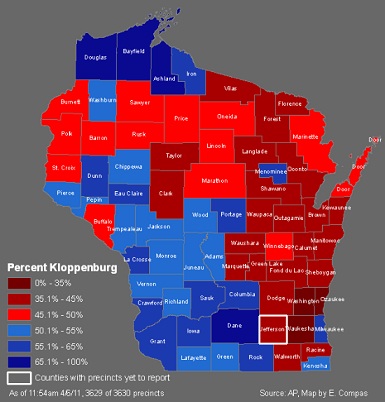The other day it was announced that a well known, mega-company discovered a new way to destroy antibiotic resistant bacteria, such as MRSA. Using nanoparticle technology – which is 50,000 times smaller than a hair’s width – the company’s researchers were able to target an electrical charge on the bacteria’s surface, bursting the membrane open to bring about its demise.
According to the Wall Street Journal, “if successful, [the discovery] would offer a fresh strategy against a worrisome public-health problem of possibly deadly bacteria evolving to become impervious to antibiotics.” Nearly 19,000 people in the U.S. each year die from drug-resistant MRSA. Needless to say, this could be a big breakthrough.
Was it Pfizer, Bayer, Merck / Schering-Plough or one of the other great pharmaceutical companies that made the huge discovery?
No.
It was Big Blue – IBM – one of the world’s largest IT firms.
So what, you might say.
Well, we talk a lot about innovation and discovery like it’s just simple math. And when we see the results, we say, “Oh, yeah, I see. It’s obvious how ‘x’ could be.” Yet, when it gets down to it, a lot of discovery is art, accidental, and non-linear.
IBM makes mainframes, software, and provides IT services to individuals and companies across the globe. Though the company has been working on nanotechnology for years, who could have predicted they’d be combating MRSA? It’s not a drug company. But, today, it looks like it is (or certainly could be).
This non-linear, man-bites-dog discoverer – IBM as pharma company – holds an important lesson for regulators of technology.
Imagine if IBM was somehow regulated. That, because of its dominance in the field of micro technology, it had to share or “open source” its discoveries to keep the playing field “level” for competitors. Suddenly, the non-linear path to discovery looks a lot more narrow. In fact, perhaps it’s even foreclosed if the resulting cost is too high and the potential return on investment is too low to take the risk.
This is not so far fetched. The company itself was the subject of a 40-year consent decree by the DoJ, which regulated various aspects of its mainframe and PC markets. Some believe this regulation restricted their growth and innovation just as the PC became ubiquitous.
Thankfully – for IBM and the marketplace – they’re unregulated. And this has allowed them to take chances, be artful, and bring about non-linear advances society so needs. Hopefully there’s more on this front to come.
Does this hold a lesson for regulators at the FCC? It sure does.
Ironically (or some might say, arbitrarily), the FCC’s new Net Neutrality regulations arrive at a time when the marketplace is thriving. They are more the result of a campaign promise and the active lobbying of entrenched, special interests than a response to anything broken in the marketplace.
The FCC may think that it has created “light rules of the road,” limited only to network providers, to protect the Internet’s openness. But those rules will bend and get perverted beyond their “light” intentions. FCC regulators, as well as their “public interest” cheerleaders, know that once the camel’s nose is under the tent, pretty soon that camel’s going to be snoozing, fully inside.
They seemingly ignore the fact that the growth of the Internet has occurred symbiotically. With each advance – at the core (network) and at the edge (devices, content, applications and services) – the other side has responded with new innovation, creating a feedback loop that has brought immense consumer and societal benefit to the vast majority of Americans.
Sadly, as these rules look more like confiscatory, 19th Century telephone regulations – and they will – innovation, risk and dynamism in the core of the network will diminish. When that happens, the data-guzzling devices, content, applications and services we have grown to like and depend upon at the edge will suffer, too.
It doesn’t have to be this way.
No one knows on any given day where innovation will lead to next on the Internet. Yet one thing we do know is if we let the FCC “flexibly” regulate network providers to “keep the Internet open” – a medium that is pretty darned good and open right now, without the FCC’s “help,” thank you – the agency is more apt to break what isn’t broken than improving the interdependent ecosystem that is the Internet.
Broken is not the type of non-linear development that the U.S. needs. Rather, we need more IBM-like pharma discoveries. Less regulation – not more – is the booster shot America’s Internet requires to keep the medium growing, vibrant and healthy.

COMMENTS
Please let us know if you're having issues with commenting.